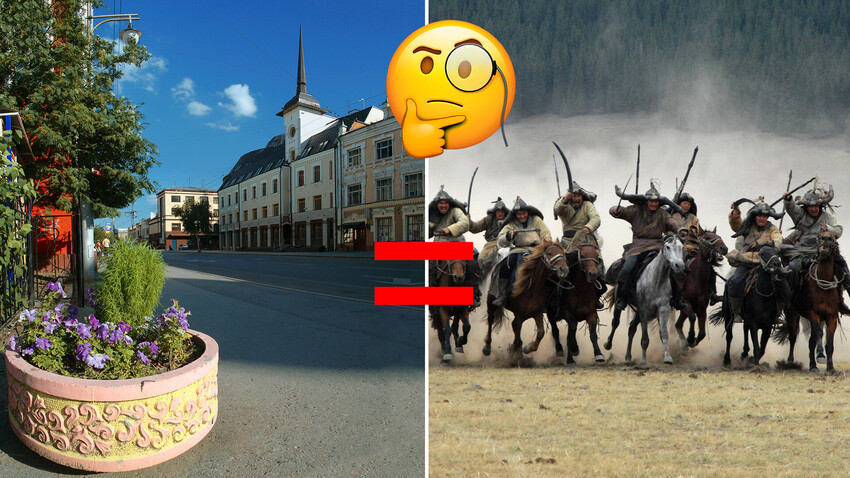
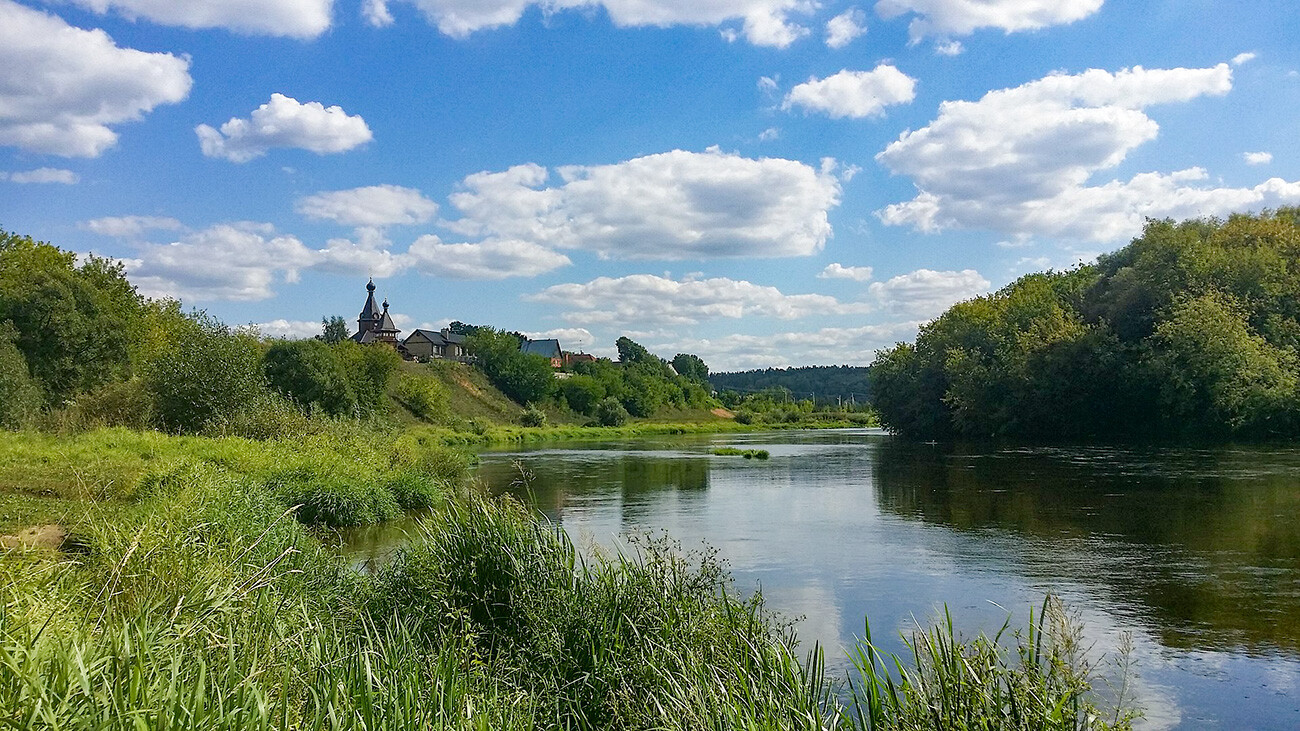
Moskva river outside Moscow
Δημήτριος (CC BY-SA 4.0)Moscow’s name in Russian – Moskva – is the name of the Moskva River the capital was built on. Linguists still disagree on the origin of the river’s name. But, it can be related to the Slovak word ‘mo^zgа’, which means ‘a puddle’ or the Lithuanian word ‘mazgoti’, which means ‘to rinse’. Also, ‘Moskawa’ is the name of at least three rivers, one in Poland, another one in Ukraine, third in Belarus.
According to Russian linguist Vladimir Toporov, the name ‘Moskva’ can be traced back to old Baltic forms that mean a “moist place, a riverbed”.
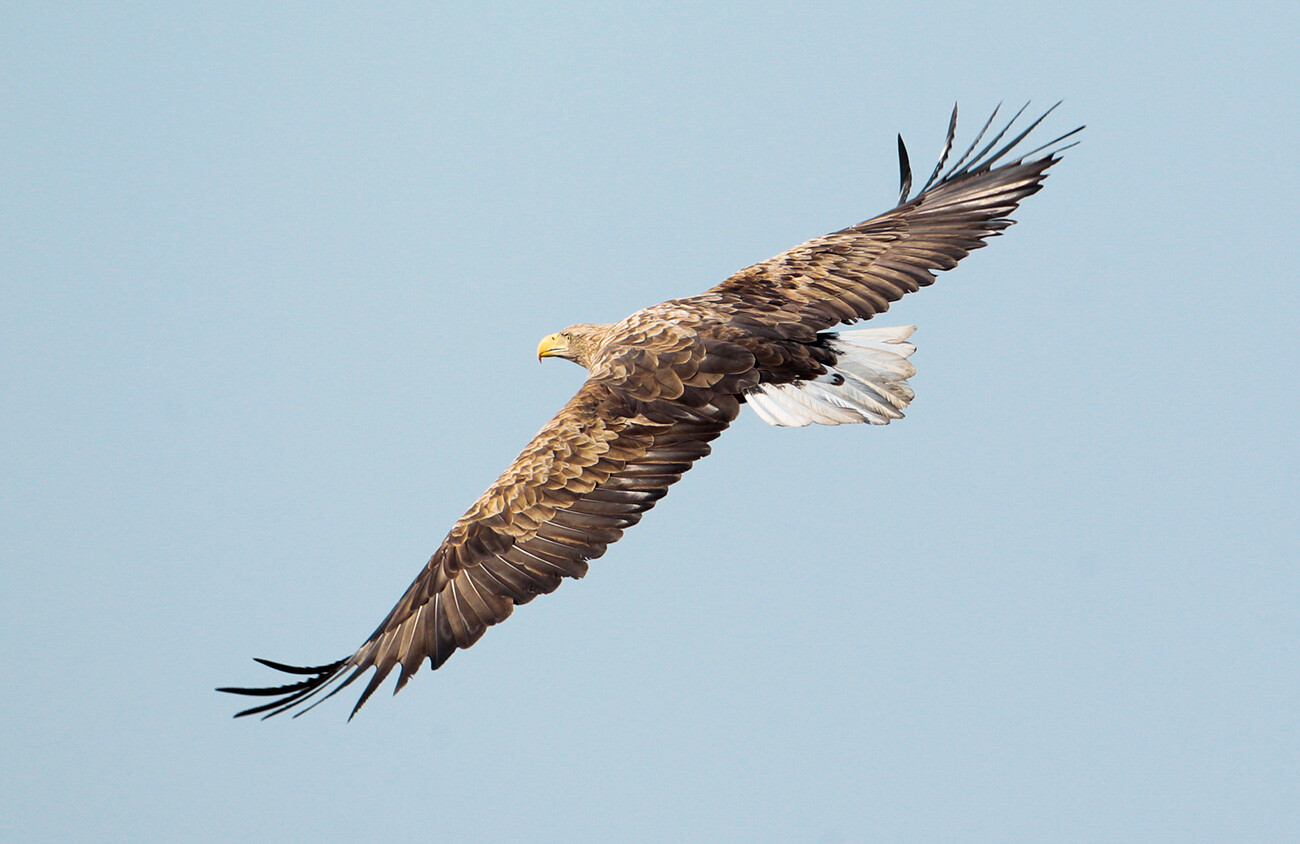
The name of this ancient Russian town 368 kilometers southwest of Moscow simply means ‘an eagle’. There is no solid explanation for its origin.
‘Orlik’ (‘a small eagle’ in Russian) is the name of a river that flows into the Oka River in the historical center of Oryol and it gave the name to the whole town. However, we’re not sure why the river is named after a bird; it may also have some completely different ancient meaning.
There is only one legend that says, in 1566, when Ivan the Terrible ordered the construction of the first Oryol fortress, builders started chopping down an old oak tree at the confluence of the Oka and Orlik. Suddenly, an eagle emerged from the top of the tree. The tsar then ordered the fortress to be named ‘Oryol’.
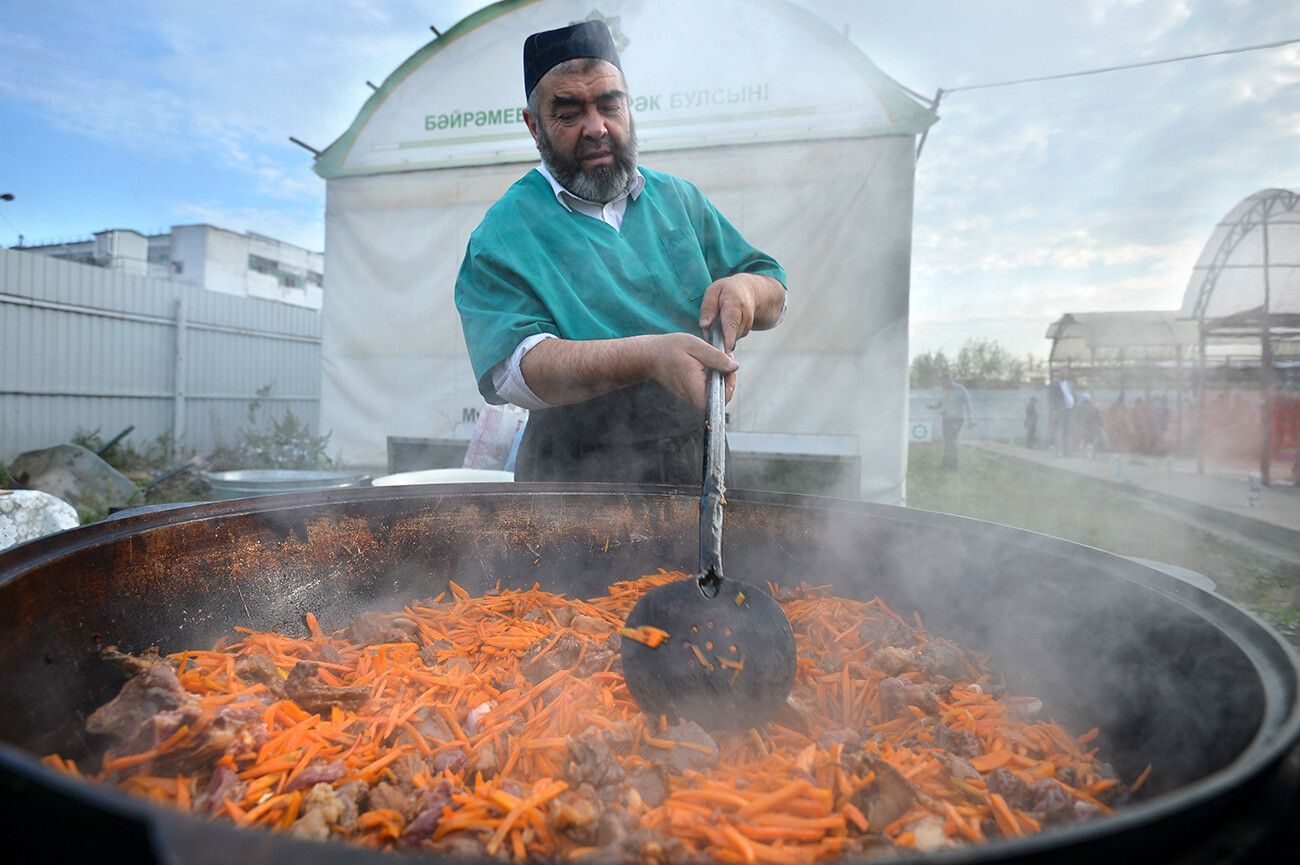
A man cooking pilaf in Kazan
Maksim Bogovid/SputnikAlthough there is a version that says that Kazan’s name means “a turn of the river” in the ancient Alanian-Burtas language, another version is prevalent.
‘Kazan’ in Turkish means ‘cauldron’. However, linguists suppose that for the city, it means “a low place”. Kazan is located on the lower bank of the Volga River and the center of the city has many hills and hollows. So, such an explanation is, at least, partly valid.
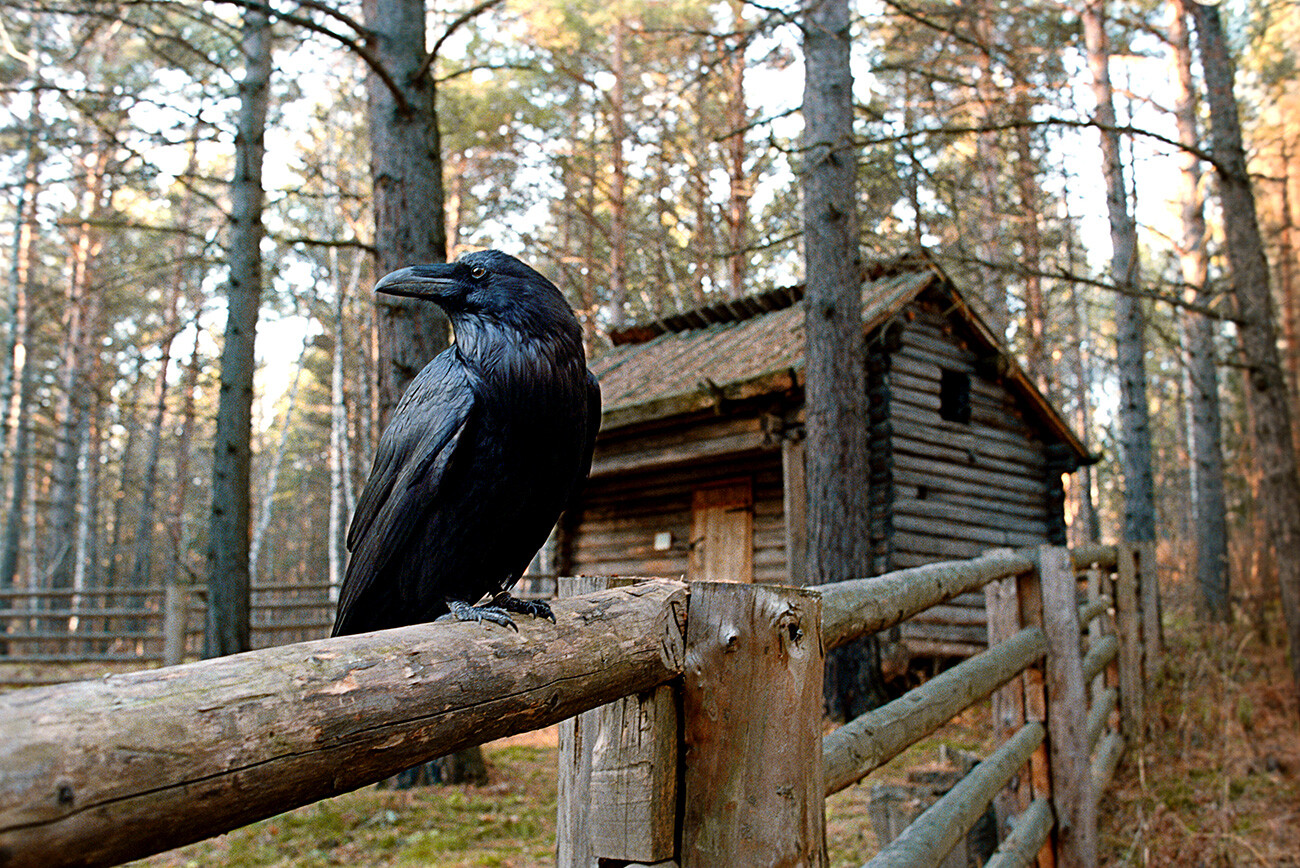
Again, there is no certain explanation, but the name of the river, Voronezh, the city of Voronezh stands upon comes from the root word ‘voron’, which, in Russian, has two meanings – ‘raven’ (‘voron’) and ‘black’ (‘voronoy’). These words in Russian are related, because ravens are naturally black.
It is also possible that ancient Russians called the river ‘Voronezh’ (‘a black one’), because its waters in those times were dark and muddy, but this hypothesis cannot be proven or refuted.

The name of the ancient Russian town of Smolensk comes from the word ‘smola’, which means ‘resin’ in Russian. This is one of the most reliable versions of the town’s name.
The ancient trading route from the Varangians to the Greeks needed a lot of ships, because, in Old Rus’, rivers were the best transportation routes. Smolensk is located amongst thick pine tree forests and the local population produced pine resin that was used to make pitch for tarring boats. Subsequently, the locals were dubbed ‘smolyane’ – ‘the ones who make resin’ – and the name stuck with the town.

The contemporary town of Bryansk actually had a longer name before – it is mentioned in the year 1146 in the Ipatiev Chronicle as ‘Debryansk’, which is clearly translated as “the one in the thicket [of the woods]”.
And, if you noticed that ‘Debryansk’ is somehow similar to the word ‘debris’, that’s not the case, as these words have different etymologies.

In the Mongol-Tatar army that invaded Russian lands in the 13th century, a ‘tumen’ was a military unit that had 10,000 soldiers. Subsequently, a territory that could supply the army with this number of warriors, came to be called ‘tumen’. Mongol and Tatar khans, princes of the Golden Horde, had many ‘tumens’ in their possession and could grant them to their servants as estates.
Most likely, the name ‘Tyumen’ comes from the word ‘tumen’, because the Siberian territory where the town is located used to be part of the ancient Siberian Khanate and other ancient states that used the Mongol-Tatar army divisions and surely had ‘tumens’.
Dear readers,
Our website and social media accounts are under threat of being restricted or banned, due to the current circumstances. So, to keep up with our latest content, simply do the following:
If using any of Russia Beyond's content, partly or in full, always provide an active hyperlink to the original material.
Subscribe
to our newsletter!
Get the week's best stories straight to your inbox